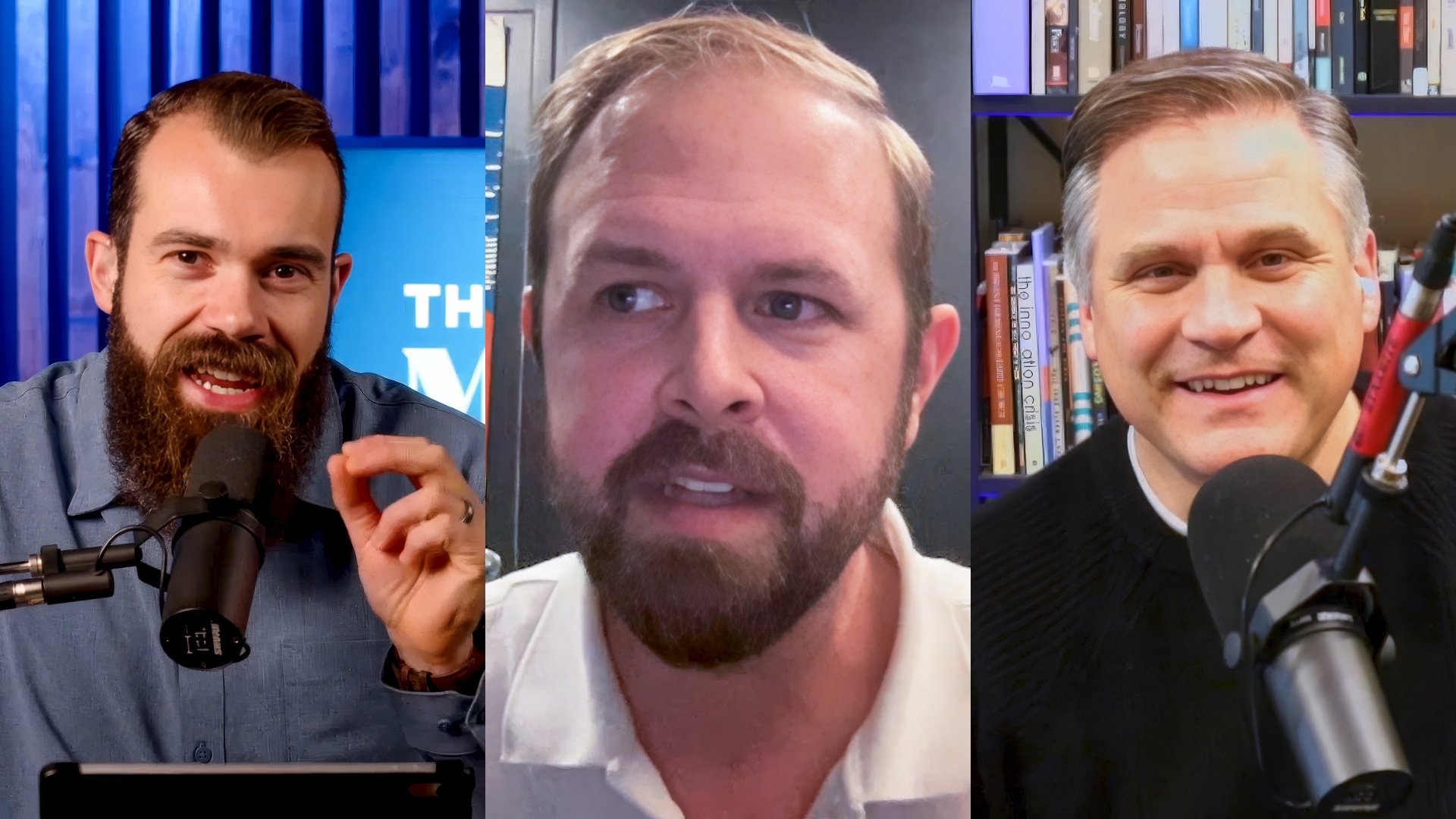For multiple decades, evangelical missiologists have emphasized the need to focus the church’s missionary efforts on unreached people groups (UPGs).
Ever since Lausanne ’74 when Ralph Winter exposed the “hidden peoples” of the world and redefined the nations (panta ta ethne) along ethnolinguistic lines, missionaries and mission agencies have increasingly prioritized work among UPGs. This tectonic shift in global missiology, now 50 years on, has subsequently reshaped the landscape of evangelical missions.
For many, defining panta ta ethne as discrete people groups and designing strategies to reach them is simply presumed. However, in recent years, some have begun to question this approach. Alongside those offering a minority report, this article will argue the prevailing definition of panta ta ethne is exegetically and sociologically untenable, and thus missiological strategies based on that definition are inherently prone to error.
In what follows, I will begin by making some exegetical observations that call into question the practice of defining panta ta ethne along sociocultural lines. This groundwork is crucial, not least because all methodology is built on theology. I will then transition to mention some historical and sociological realities that further undermine the prevailing definition of UPGs. After those considerations, I’ll conclude with some practical suggestions for contemporary missions. My aim is not merely to critique but to offer constructive proposals for a faithful way forward.
Exegetical Observations
I believe that understanding the ethne as ethnolinguistic or sociocultural groups is biblically unsustainable. Furthermore, recent calls to “finish the task” by identifying and prioritizing work among each and every one of those discrete groups misread Jesus’ promise (Matthew 24:14) and commission (Matthew 28:18–20) to his first followers. Here are five reasons we should reconsider the prevailing sociocultural definition of panta ta ethne.
1. Throughout the Bible, the term ethne (nations) typically refers to Gentiles or non-Jews.
This is true in both the Greek translation of the Old Testament (Exodus 15:14; Numbers 14:14–16) as well as in the New Testament. In Matthew’s Gospel specifically, the ethne are consistently Gentiles, those outside the covenant people of Israel. Williams and Moss make this point and then suggest panta ta ethne in Matthew 28:19 is likely meant to include both Jews and Gentiles, thus referring to “all of humanity.”[1]
2. Defining the ethne as sociocultural people groups prefers a modern anthropological definition over a biblical-theological one.
When Jesus and the apostles spoke of the ethne, their primary reference point would have been the Old Testament, specifically the table of nations in Genesis 10 and the promise to Abraham in Genesis 12 (see Galatians 3:8, 14), as well as Isaiah’s prophecies about the servant of the Lord.[2] They weren’t operating within the sociological categories of today when using the term. Thus, the prevailing definition of ethne is anachronistic.
3. The term pas/panta (all) does not always mean “each and every” in the New Testament.
Even if we grant that ethne implies people groups, it doesn’t follow that we should understand Jesus’ promise in Matthew 24:14 to mean the gospel will be preached to each and every UPG. As Schreiner explains, “the word ‘all’ is not invariably used in a comprehensive sense.” For example, Matthew says that “Jerusalem and all Judea and all the region about the Jordan” were going out to John (Matthew 3:5, ESV). Thus, he cautions against reading panta ta ethne in a literalistic way or as a kind of “mathematical formula.”[3]
4. Jesus and the apostles, though speaking truthfully, weren’t necessarily speaking with modern, scientific precision.
When we come to the account of Pentecost, Luke says that panta ta ethne were present to hear the gospel (Acts 2:5). This leaves us with a couple of interpretive options. Luke could have been speaking hyperbolically or colloquially. Or he could have been stating that all nations (perhaps according to a common Jewish understanding) were in fact represented in Jerusalem that day. But he certainly wasn’t writing with the same scientific precision presumed by a UPG definition.
5. The apostles’ statements about the gospel’s advance suggest they believed “all nations” heard the gospel in their lifetimes.
In addition to Luke’s record of all the nations present at Pentecost, Paul says the gospel was bearing fruit “in the whole world” (Colossians 1:5); it had been preached “in all creation” (Colossians 1:23). God enabled him to proclaim the gospel so “all the Gentiles” (panta ta ethne) might hear it (2 Timothy 4:17). These and similarly expansive statements from Paul (Romans 1:8; 10:18) suggest he understood the promise of Matthew 24:14 had been fulfilled, at least in some way, in his lifetime.
If these observations are correct—in fact, if any one of them is correct—then it calls into question the definition of UPGs that drives much of missions strategy today. But it’s not just that the accepted understanding of UPGs is biblically questionable; it’s also historically and sociologically problematic.
Sociological Considerations
Prioritizing work among UPGs has some basic real-world problems. As Darren Carlson and I have suggested elsewhere, even if we tried to preach the gospel to each and every ethnolinguistic group, it would be practically impossible. Some groups, as defined by UPG proponents, have gone extinct, many before the gospel reached them. The same could be said for various languages.
Furthermore, defining UPGs as discrete entities employs an outdated anthropological model. Instead of an essentialist understanding of culture, we should recognize that so-called “people groups” are rarely fixed, clear, and distinct from one another due to a variety of historical and cultural factors.
Lee and Park argue that the common understanding of UPGs is at odds with contemporary sociology. More specifically, they criticize “essentialized conceptualizations” that don’t account for the “fluid and porous nature of social boundaries as well as the reality of globalization and hybridization of contexts.”[4] In short, defining UPGs as discrete and self-contained entities is based on obsolete, simplistic, and often errant understandings of societies and cultures.
Practical Suggestions
What does this mean for our missiology? If identifying, isolating, and prioritizing work among UPGs according to the dominant missiological definition is both biblically untenable and sociologically unworkable, what should we do? My simple proposal is to emulate Paul’s example. What follows are four basic principles from his ministry that are pertinent to this discussion.
1. Aim for widespread and indiscriminate evangelism.
As many have noted, Paul was motivated by his ambition to “preach the gospel where Christ was not known” (Romans 15:20). In line with that Pauline aim, I would say Ralph Winter was basically right to expose the problem of hidden peoples and forgotten places largely untouched by the gospel. I wholeheartedly affirm the value of strategically directing missions efforts to such areas of recognized need. However, in my experience, when missionaries prioritize narrow UPG strategies, that can sometimes constrain the broader Pauline goal of widespread evangelism and winning “as many as possible” (1 Corinthians 9:19).
Let me give an example. Years ago, our family served with a team focused on reaching a specific UPG. Initially, however, we saw the most fruit from those within the majority language. In response, our leadership instructed us to avoid those new believers and seekers. In effect, they wanted us to prefer one group over another. More than just strategically imprudent, I found it biblically indefensible. And as an expression of partiality, I believe it was potentially sinful. Contrary to such a practice, I would encourage missionaries to spread the gospel indiscriminately among all groups.
2. Strive for maturity and faithfulness.
Paul the missionary was concerned about far more than just the pioneer advance of the gospel.[5] He discipled believers to maturity (Colossians 1:28). He taught the whole counsel of God (Acts 20:27). He was constantly anxious for the churches in his care (2 Corinthians 11:28), and he vigorously defended them from false teachers. Paul then entrusted his gospel, and that same pattern of ministry, to faithful local leaders (2 Timothy 2:2).
When such maturity and faithfulness are the goal, it challenges the metrics behind UPGs, including the arbitrary 2% threshold. Perhaps that number could indicate a movement’s viability and reproducibility, but it says nothing of its biblical acuity and gospel fidelity. In other words, it tells us little about the quality of our work. Over the past few decades, an emphasis on UPGs has led missionaries and mission agencies to abandon “reached” fields prematurely, with devastating results. However, if we measure success by the holiness of our disciples and the health of our churches—and ultimately by our faithful stewardship of the gospel—we may avoid such errors.
3. Promote unity in Christ’s body.
Among the most striking missiological approaches of Paul was his dogged commitment to unity in the church among those from different social classes and various ethnic backgrounds. Sadly, focusing on UPGs can sometimes engender the exact opposite. Missionaries, following the Homogeneous Unit Principle, will often seek to stimulate the gospel’s spread through existing cultural groups. Such a practice promotes uniformity more than unity and can unintentionally accommodate sinful tendencies toward exclusion and discrimination.
Of course, there are peoples and places where linguistic or geographic barriers will require distinct congregations. But many times, missionaries foster divisions in the church where they don’t exist in society. Functionally, there’s no reason why groups that live together, school together, and work together cannot also worship together. Theologically, they must! Granted, building unity among diverse and even hostile groups can be extremely difficult. But this is worthy gospel work. Rather than advocating for segregation, missionaries should promote counter-cultural unity in the body.
4. Value shared-language ministry.
When we look at Paul—and the rest of the New Testament—we find a surprising willingness to operate in the shared language of Greek throughout the Roman Empire. Today, we have similar opportunities around the world. That’s not to minimize the necessity for many missionaries to engage in rigorous language study, nor is it meant to diminish “heart language” ministry. We need workers focused on reaching language groups that won’t be reached through shared majority languages. However, as we engage in those essential efforts, we shouldn’t overlook the amazing value of trade languages, including the ascendancy of English globally.
Shared languages can, in some contexts, foster unity and provide opportunities for gospel partnership. Where present, they can also give more immediate opportunities for evangelism and discipleship. Also, many trade languages, such as Russian or French, already have established theological vocabulary and published Christian resources. For these reasons and more, missionaries should consider the value of gospel ministry in the lingua franca.
[W]e should be careful when emphasizing UPGs that we don’t neglect the “weightier matters” of missions.
Clearly, this is just a simple sketch of possible priorities for our gospel work as we seek to obey our Lord’s commission. Yet, that simplicity is part of my point. At the end of the day, I’m not convinced we need to spend more of our limited time, energy, and resources for a vision of people group ministry that the Bible never envisioned nor prescribed.
Does that mean we no longer conduct ethnographic studies, evaluate minority languages, record religious percentages, or adopt people groups? Not necessarily. But we should be careful when emphasizing UPGs that we don’t neglect the “weightier matters” of missions. Wherever we go, we should prioritize broad evangelism and deep discipleship, gospel unity and ministry partnerships, healthy churches and qualified leaders. Without these, our task remains unfinished.
Editor’s Note: This article was originally published in Missions Frontiers, part of the Frontier Ventures family of ministries, on September 1, 2024. Used with permission.
[1] Jarvis J. Williams and Trey Moss, “Focus on ‘All Nations’ as Integral Component of World Mission Strategy,” in World Mission: Theology, Strategy, & Current Issues, ed. Scott N. Callaham and Will Brooks (Bellingham, WA: Lexham, 2019), 132.
[2] T. Desmond Alexander and Brian S. Rosner, eds., New Dictionary of Biblical Theology (Downers Grove: InterVarsity Press, 2000), 677.
[3] Thomas R. Schreiner, New Testament Theology: Magnifying God in Christ (Grand Rapids: Baker Academic, 2008), 811.
[4] Peter T. Lee and James Sung-Hwan Park, “Beyond People Group Thinking: A Critical Reevaluation of Unreached People Groups,”
Missiology 46, no. 3 (2018): 214.
[5] See Elliot Clark, Mission Affirmed: Recovering the Missionary Motivation of Paul (Wheaton: Crossway, 2022).




